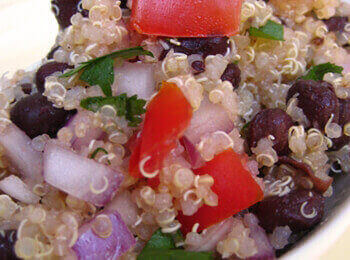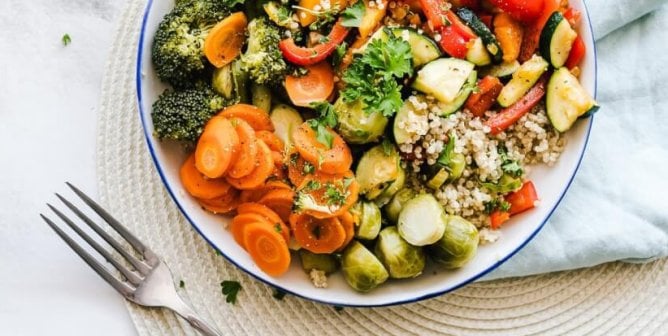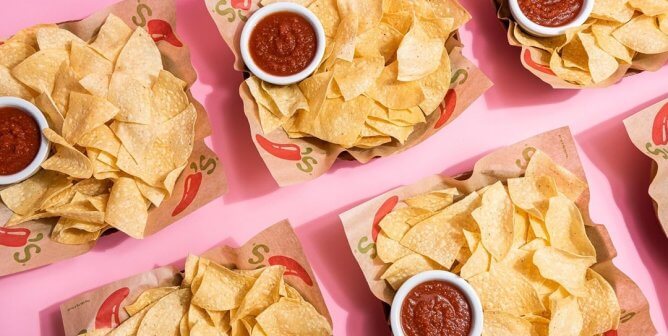Lower rates of heart disease, obesity, and several types of cancer are just some of the health benefits that vegans enjoy. These health benefits are directly linked to the fact that plant foods tend to be rich in healthy plant protein, dietary fiber, vitamins, minerals, and cancer-fighting antioxidants, without all the cholesterol, saturated fats, and toxins found in animal flesh. Although all whole-plant foods are healthy, some deserve special recognition for their health-promoting properties. We have listed 11 of these “vegan super-foods,” along with a few delicious recipes for each one.
A+ for Avocados
Although saturated animal fats clog people’s arteries and can lead to heart disease, research shows that the fats found in many plant foods are good for our health. For example, avocados are high in monounsaturated fats, which are important for keeping your skin and hair looking healthy. Plus, monounsaturated fats may reduce your risk of developing heart disease. Avocados are also high in potassium, vitamin K, vitamin E, and folate. Sliced avocadoes are a delicious addition to virtually any sandwich or salad.
Avocado and Tomato-Wedge Salad With Balsamic Vinaigrette
Orange Wonders
No, we’re not talking about oranges—although oranges are a great source of vitamin C. We’re talking about other orange-colored vegetables and fruits, namely carrots, sweet potatoes, mangos, and certain melons, like cantaloupes, which are all high in beta carotene. Beta carotene is vital for our bodies’ production of vitamin A. Vitamin A is important for maintaining good vision and healthy skin, but many people don’t get enough of this nutrient. So grab a bag of baby carrots, pop a tasty sweet potato in the microwave, or slice into a delicious ripe mango!
Nutty for Walnuts
The walnut is a tasty food that’s high in protein, iron, zinc, and omega-3 essential fatty acids. By snacking on walnuts, you’ll get the omega-3s that you need without all the mercury, PCBs, and other toxins that are found in fish flesh. You can also get omega-3s by adding ground flaxseeds to cereal or salad or by pouring a bit of flaxseed oil over just about anything. Always keep flaxseeds and flaxseed oil refrigerated, and never heat it―it’s very perishable.
It’s Easy Being Green
Our bodies need calcium, but they don’t need the allergens, hormones, and health problems associated with the consumption of dairy products. Dark-green leafy vegetables—such as broccoli, kale, and collard greens—are tasty, healthy foods that have plenty of highly absorbable calcium. Plus, these greens are high in potassium, vitamin K, and magnesium—which are also good for bone health—as well as vitamin C and beta carotene. Other good sources of calcium include almonds, sesame seeds, many brands of soy and rice milk, some brands of tofu, and calcium-fortified orange juice.
Beans, Beans, and More Beans!
A hearty staple for millions of health-conscious diners, beans are versatile and come in numerous shapes, colors, and flavors. Beans are packed with protein and are good sources of iron and zinc. Garbanzo beans (also known as chickpeas) are a tasty choice. You can sprinkle garbanzo beans straight from the can on salads for some added protein and flavor, or you can try one of the delicious recipes below. Also be sure to try black beans, pinto beans, and kidney beans.
Q Is for Quinoa
Never heard of this fantastic grain? Many people haven’t, but quinoa (pronounced KEEN-wah) is delicious. It’s packed with high-quality protein and contains healthy complex carbohydrates. Try it with beans and vegetables in place of rice, or use it to stuff baked vegetables. Other exotic grains that can help vary your cooking lineup include spelt, kamut, and millet. And don’t forget buckwheat, which isn’t technically a grain but definitely acts like one.
Do You Have High Cholesterol? Whip Up Some Oatmeal!
If you’re concerned about your cholesterol levels, eating a cup of cooked oatmeal every day can help. Oatmeal can lower your cholesterol by up to 20 percent—the higher your cholesterol levels are, the more they can be lowered by oatmeal. Of course, high cholesterol is rarely a problem for vegans. Oatmeal is also a good source of healthy plant protein, and it’s high in other important nutrients. Raisins, bananas, dried fruits, and walnuts are tasty, healthy additions to a warm, hearty bowl of oatmeal in the morning.
Oatmeal–Chocolate Chip Cookies
‘Coffee-Can’ Oatmeal (great for camping!)
Lentils Galore
Like beans, lentils are members of the legume family. Lentils pack a major nutritional punch. Lentils are loaded with protein and fiber as well as folate, magnesium, and some B vitamins, all of which may help fight heart disease. A major study of 16,000 middle-aged men found that people who consumed a lot of legumes were 82 percent less likely to get heart disease! Lentils are savory and flavorful, and they’re perfect in a wide variety of soups, stews, and main-course dishes.
Berrylicious
Berries are some of the healthiest—and most colorful—foods that you can eat. Strawberries, blueberries, raspberries, blackberries, and mulberries all contain potassium, vitamin C, magnesium, folate, pro-vitamin A, and vitamin K. Berries—especially blueberries—are also high in cancer-fighting antioxidants. Try sprinkling some berries on oatmeal or adding them to a bowl of cereal with soy, almond, or rice milk.
Super Soy
Researchers have linked the consumption of soy with a number of health benefits, including a reduced risk of developing some types of cancer as well as improvements in heart health. (For example, a National Cancer Institute study mentioned in Time in 2006 found that women who ate higher amounts of soy when they were young were far less likely to develop breast cancer than women who had consumed little to no soy.)
Soy is also packed with healthy plant protein. Often used to imitate the taste and texture of meat, soy “meats” taste like the real thing but without any of the cruelty or cholesterol. Tempeh, which is made by fermenting soy beans, is another meat-like option and contains lots of protein (15.5 grams in every 3-ounce serving) and zinc. Of course, there’s also the wonderfully versatile tofu—a healthy classic that takes on the flavor of whatever is cooked with it.
You Say ‘Tomato’
Whether tomatoes are fruits or vegetables has long been debated by folks around the dinner table. (According to scientists, they’re technically fruits.) Whatever they are and however you want to pronounce their name, tomatoes are very flavorful and healthy. The most well-known nutrient in tomatoes is the antioxidant lycopene. (Antioxidants are nutrients that fight free radicals.) A number of studies have linked increased consumption of lycopene with a major reduction in prostate cancer. Tomatoes also contain vitamin A, vitamin C, and fiber.
Search for more vegan recipes.
Text VEG to 73822 to get the latest vegan lifestyle tips, recipes, and urgent action alerts texted right to your phone.
Terms for automated texts/calls from PETA: https://peta.vg/txt. Text STOP to end, HELP for more info. Msg/data rates may apply. U.S. only.







